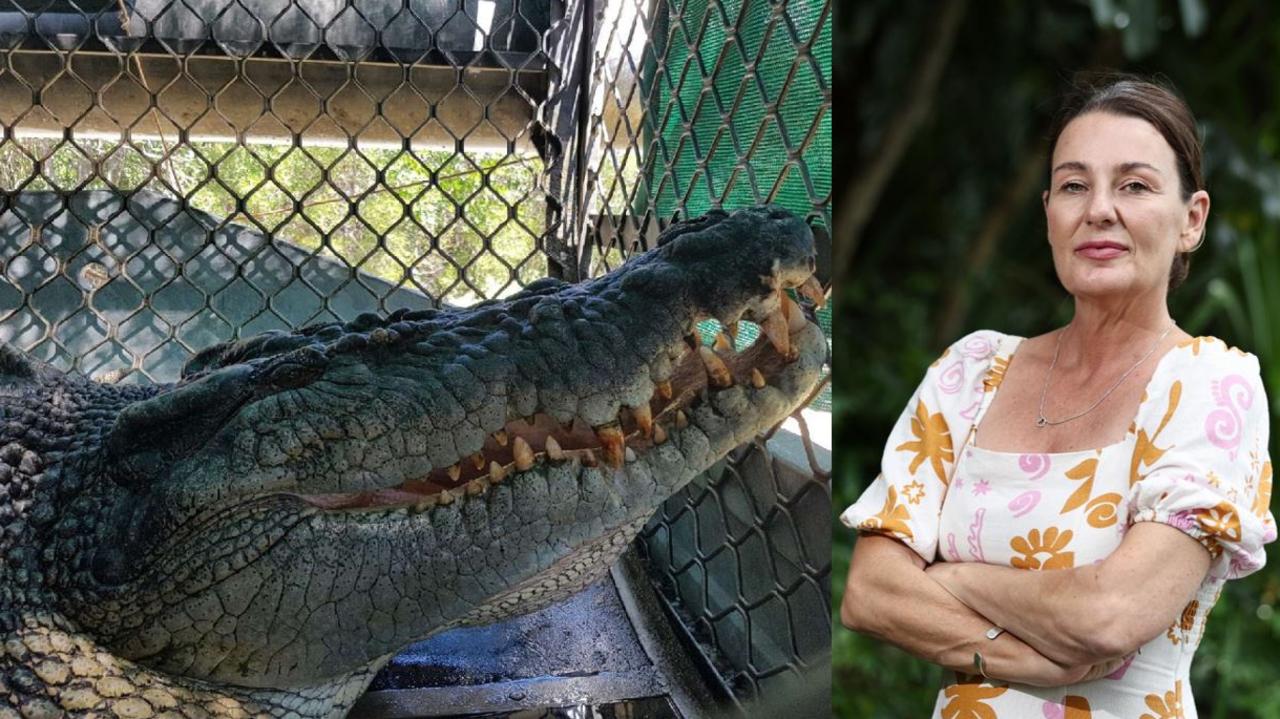‘Recipe for disaster’: Dog owners are using dog parks all wrong
Dog parks are a ‘recipe for disaster’ according to a behavioural expert who says the way dog owners use them could be doing more harm than good. Check out his top tips, and find the dog breed best suited to you.
Pets and Wildlife
Don't miss out on the headlines from Pets and Wildlife. Followed categories will be added to My News.
- From Special Forces to the kind of doggie Disneyland
- Let them ride: Calls for dogs on public transport
From overstimulated dogs that can’t be recalled, to anxious pups and obsessive ball chasers, dog parks are rife with problems and may be doing your dog more harm than good.
That’s the view of dog behavioural expert Ian Shivers who says many owners are using dog parks all wrong.
“The biggest mistake people make is assuming their dog knows what to do at a dog park,” the founder of Bondi Behaviourist said.
“When a dog leaves the house, no dog on earth is trying to exercise, no dog is trying to lose weight or maintain its fitness, and they’re not actually out to socialise.
“Dog parks are a completely man-made concept. Essentially it’s a group of strangers standing in a field being a little bit weird.”
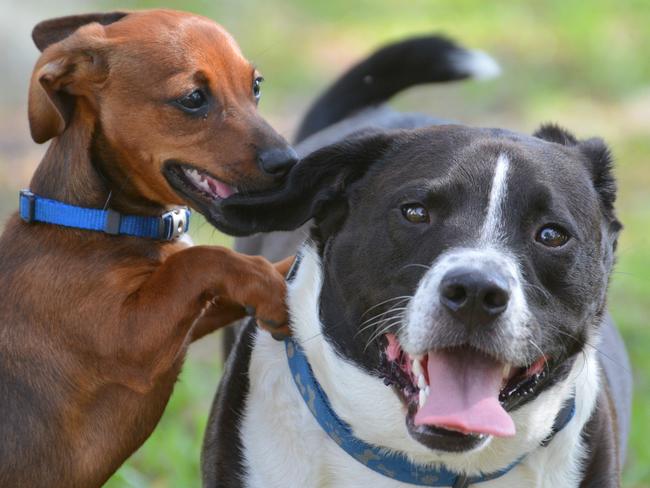
Shivers says owners assume dog parks are the best way to socialise their animal without understanding what healthy interactions look like or reading their pet’s body language.
Trying to force nervous dogs to make friends can instil more fear, while hyping up dogs in a bid to tire them out can lead to anti-social animals who can’t read others’ cues.
“And dog parks that are fenced, I personally avoid because I know they attract people who don’t have recall,” he said.
“I know that dog is probably a bit of a loose unit being allowed to just burn off excess energy. It’s a bit of a recipe for disaster,” he said.
If you want to make dog parks a positive experience, these are Shivers’ tips.
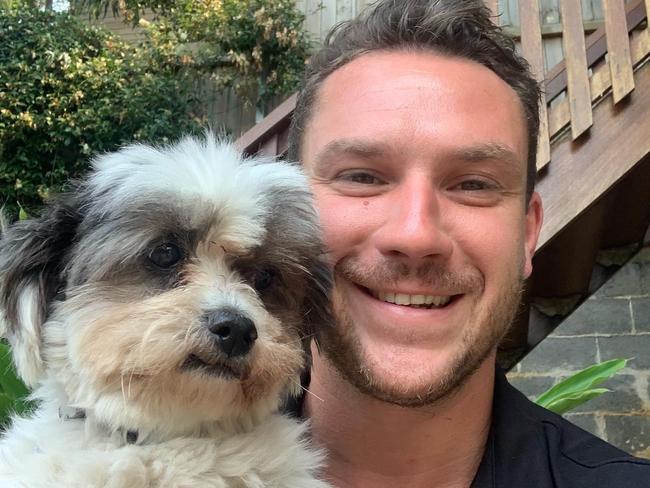
IAN SHIVERS’ TIPS FOR A POSITIVE POOCH PARK EXPERIENCE
STAY CALM
Take your dog in calmly and build their tolerance slowly to other dogs in their space.
Make yourself the focus and practice recalling your dog.
Reward calm behaviour and do not overstimulate them.
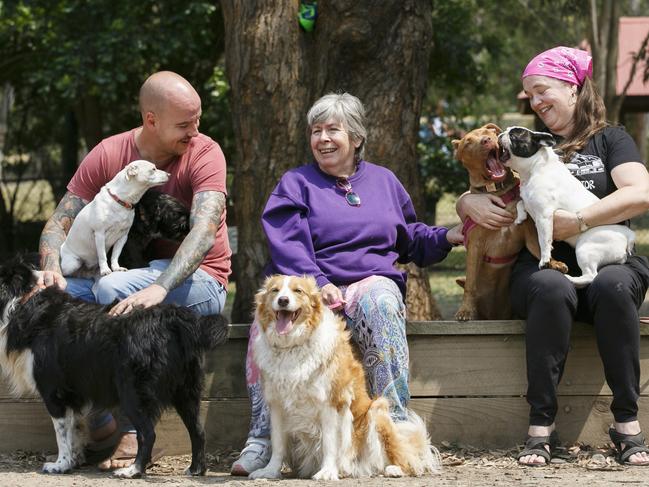
“Your gauge is if he can sit and stay and hear you, he’s coherent,” Shivers said.
“We’re trying to keep a dog in a social, coherent frame of mind in a dog park.”
If your dog ticks those boxes, then let him off the lead and build from there.
IT’S NOT ABOUT YOU
If you can’t pay attention to what is happening, do not go.
“People go in there for their own goals. They want to go and drink their coffee and chat with their mates but they don’t watch their dog,” Shivers said.
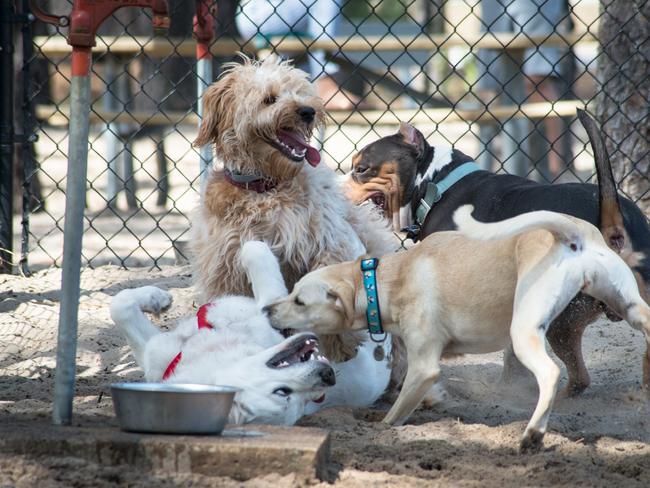
“We see the weirdo dogs that don’t want to be there, they’re hovering by the owners, who’s saying, ‘Yeah he loves it here’.
“No mate, you’re the one that loves it here.”
If your dog is not wanting to go off and engage, attention-seeking on you, or the other extreme, is just relentlessly into everything, back off and talk to a trainer.
HYPER-AROUSAL ISN’T HAPPINESS
Firing off a dog like a bow and arrow will not put them in a social frame of mind or help them relax.
“We have a dog culture where we try to put emphasis on tiring the dog out,” Shivers said.
“But in my experience a tired dog is the same as a tired human.
“It’s not very social, it’s intolerant, not very good at coping with change and its not very good at learning.”
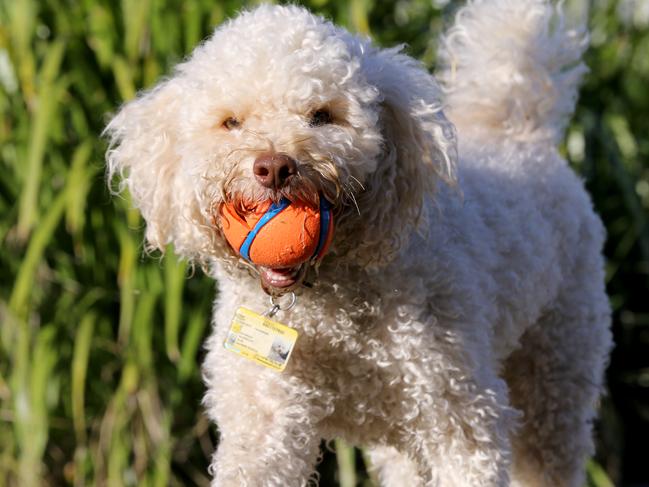
Shivers said it was also a recipe for disaster in a dog park packed with variable training levels and anxieties.
Socialising and play requires having a conversation. It is a series of invites and back offs.
“It goes wrong when someone says back off and it isn’t heard, and that’s often the case when the other individual is over stimulated,” he said.
LEAVE THE BALLS AT HOME
Do not take in balls and frisbees – they are valued resources your dog or other dogs could potentially guard.
It is a quick way to cause conflict and ruin everyone’s day.
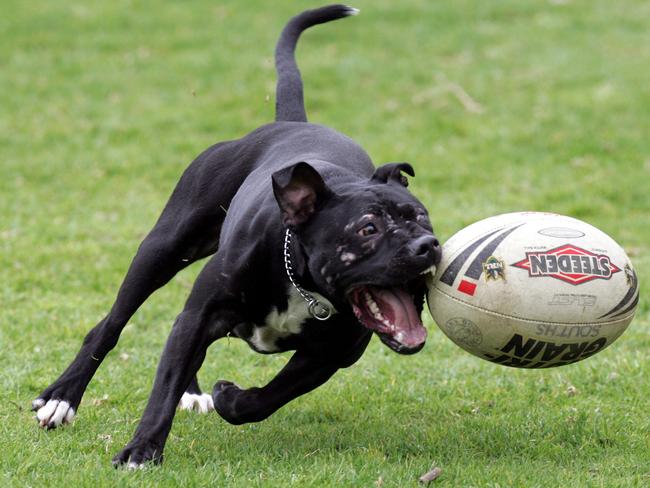
“I always joke it’s like taking a coke head into a quiet pub. It's the wrong frame of mind,” Shivers said.
“We’re trying to create dog parks to be social setting, not this intense animal chasing a ball relentlessly. If it was a person you’d think, ‘You’re not okay’.”
HERDING DOGS NEED HELP
Herding dog do not need their energy physically drained, Shivers added – it is their brains which need to be kept up with.
“If you take that dog and think you have to throw a dog in the ballpark, after 18 months, you end up with a dog who doesn’t know how to socialise as he’s always focused on the ball, is hyper-aroused in social settings and doesn’t know how to behave,” he said.
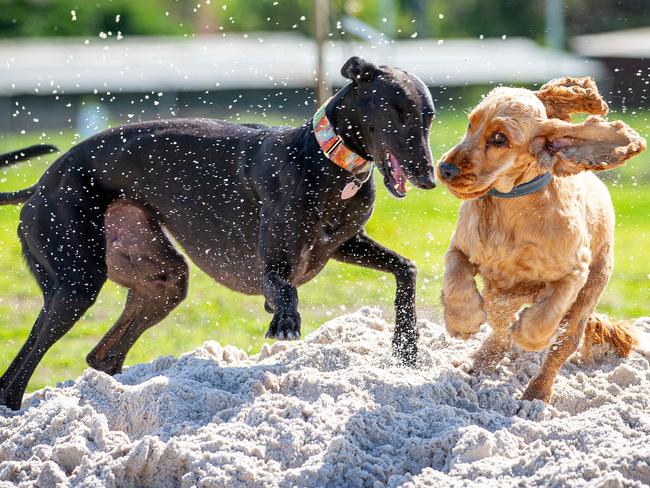
Instead, train them to go into parks calmly, interact and socialise.
“When it starts to herd other dogs, then you know right, he’s cooked for the day, let’s go home, so they don’t get the chance to practice unwanted behaviours.”
KNOW WHEN PLAY IS OVER
When a dog missteps at the dog park, a lot of owners will say, “let him go, he’s got to learn” or “just let them be dogs”.
But physical conflict for a dog is a last resort. It is the result of a dog that has panicked due to the situation we have put it in, Shivers said.
Reprimanding them when things go wrong just creates more nervousness and fear.
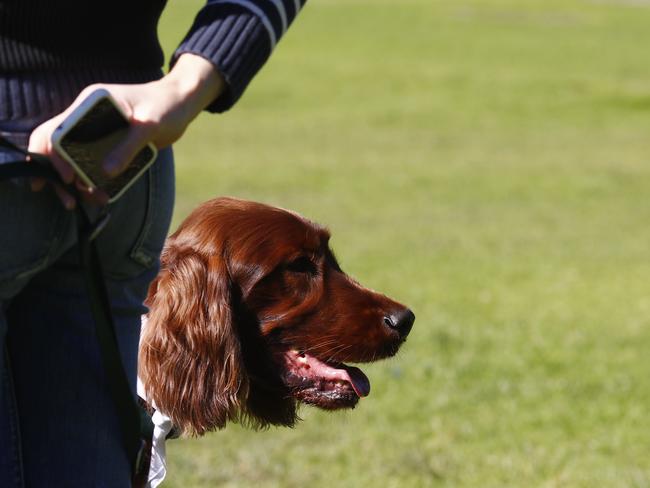
“It doesn’t teach him manners or respect because it’s gone too far and is teaching that dog to be scared,” he said.
“What we’re talking about with dog play, again it’s a conversation.
“If your dog is starting to try and disengage and is turning his head away, trying to create space … then it’s our job to step in to prevent that game continuing so the dog that is asking for space politely, isn’t forced to shout.”
IT’S OK NOT TO GO
If your dog is nervous or shows signs of stress, you can either build its tolerance up gradually by creating calm or positive experiences at the park or cut your losses.
“There’s no rule book on dog ownership. There’s nobody saying you must go to a dog park, or a cafe,” Shivers said.
“You get a dog to make you and your dog happy, beyond that there are no rules.
“A long leash, sniffing is a more effective way of draining energy than moving, walking. “Setting up nose games where a dog can forage and explore and naturally be a dog. It’s a far more natural activity than fetching a ball.
“Dog parks are full of variables. If a dog park stresses you out, don’t go.”
Originally published as ‘Recipe for disaster’: Dog owners are using dog parks all wrong


